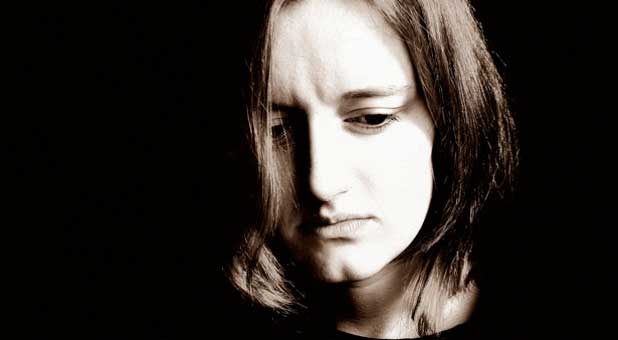The two hardest emotional struggles I have ever had centered around the issues of singleness and infertility. After breaking up with the man I thought I was going to marry, I moved to a new city to begin a new job. With no prospects on the horizon, I became quickly convinced that I would never get married, that I had lost my one chance at happiness, and now I was doomed to spend holidays in my twilight years as the spinster aunt at my sisters’ houses.
Those were the darkest months of my life. I slept a lot—because waking up and facing my bleak outlook on my future was more than I could bear. Finding a church was excruciating.
Church is a family time. And my loneliness was never more painfully obvious than when I walked in, sat and left by myself at some new church, just to go home and eat lunch by myself afterward.
I ended up choosing my church that year because I had a married friend who attended there. She and her husband would have me over for lunch on Sundays quite often. So that was my church. It had nothing to do with doctrine, and everything to do with escaping my loneliness.
Eventually, I began volunteering with the United Way, helping a family on welfare make the transition to independent living. I don’t know that I made much of a difference to that family. However, getting involved in helping them got my eyes off myself for a time, and things began to transform in my mind. I was distracted from myself. The depression over me began to lift. Soon, I met the man who would become my husband. Crisis over.
Fast forward five years. It’s time for us to have kids. I get pregnant and miscarry. But it takes a while to get pregnant again. My mind starts envisioning similar scenarios as it did years before—Andy dies and I’m left to have Christmas dinner at my nephews’ houses if they’ll have me. Who will there be to love? Who will love me? There is an empty feeling in the pit of my stomach as I contemplate my future.
I did get pregnant and now have two boys. I didn’t spend that long in either season—and yet it was long enough to learn some valuable lessons.
1) Waiting is hard. And yet, for some reason, it is one of God’s favorite ways of teaching us about Himself.
Isaiah 40:31 Yet those who wait for the LORD will gain new strength; they will mount up with wings like eagles, they will run and not get tired, they will walk and not become weary.
2) People who haven’t been through it are oblivious to the pain of the struggle. “Why aren’t you married yet?!” They mean well, but such comments seem insensitive and hurtful when you’re in the midst of the waiting.
One friend asked me, “When are you guys going to have kids?” I had miscarried the week before. And I told her. I didn’t do it to hurt her, but I knew seeds of bitterness would take root and grow if I didn’t honestly, graciously deal with it right then. She wasn’t being mean—she was ignorant. So I tried to inform her graciously in hopes she would be more sensitive to the next lady she came across.
3) My understanding of and love for God wasn’t enough to sustain me. These struggles revealed that I wasn’t confident that He would care for me, provide for me, and guide me in a path that was meaningful and fruitful. He wasn’t enough. This was a painful but needed road to walk. I really didn’t believe God was good and trustworthy with MY LIFE. In light of this, you’ll see that I do a lot of meditating here on who God is—that He is trustworthy and good even when our circumstances don’t fit our vision of the good life.
On a final note, a friend of mine recently recommended to me Did I Kiss Marriage Goodbye by Carolyn McCulley. Carolyn is a godly single woman who has lots of wisdom to share about the issues of this season of life. I love the subtitle of this book—Trusting God with a Hope Deferred. The interesting thing about my friend’s recommendation of this book is that she isn’t single. She’s infertile. But she found many of the lessons in Carolyn’s book to be applicable to the struggle of infertility as well as singleness and was very encouraged in seeking God’s face through reading it.
I don’t mean to diminish the struggle of either the deferred hope of waiting for a husband or of waiting for children by linking them in this article. But I do hope to provoke thought on the similarities of the issues and point Christian sisters to those in other stages of life who may still well understand and accompany them through their hurts.












